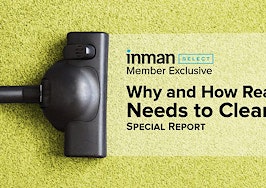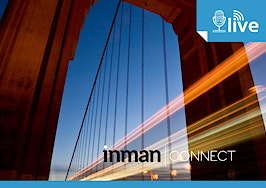Takeaways:
- Upstream’s stated mission is to solve “data integrity problems” and to reduce data-related cost factors.
- The entire real estate industry deserves the truth and nothing but the truth.
- The motivation for Upstream.
Project Upstream LLC, its in-development Advanced Multi-list Platform (AMP) and Realtors Property Resource (RPR) have announced that they will take Upstream live in about 2 1/2 years — circa 2018.
RPR’s CEO, Dale Ross, has stated, “AMP (Advanced Multi-list Platform) will help MLSs add value to their agent and broker customers with multiple front ends that will make it easier to access data in multiple ways.”
What does that mean? Will Upstream have positive or negative impacts on your real estate practice and how you generate or acquire buyer or seller leads?
Upstream’s stated mission is to solve “data integrity problems” and to reduce data-related cost factors that are plaguing the real estate brokerage industry.
It sounds plausible, maybe even good, right? Please don’t say yes just yet.
The entire real estate industry deserves the truth and nothing but the truth. No fancy terms or veiled partial truths, and no altruistic heroes, please.
If a person wants go duck hunting, they just say they’re going duck hunting and they do. It’s simple and true.

dasytnik / Shutterstock.com
You can take duck hunters for their word, and if you’re their friend they might invite you for a nice duck dinner.
Hunters don’t say they are becoming involved in an “initiative to support wildlife management and to ensure the future sustainability of wild game.”
Those are fancy words, and worse, fancy words often hide the full truth.
Like most businesses, Upstream/AMP/RPR (moving forward “Upstream”) is interested in achieving larger market share, greater control and greater revenues.
So, Upstream is going “duck hunting,” but it hasn’t said it in simple terms.
Why would Upstream maneuver upstream when it goes duck hunting?
Upstream would enjoy restoring in-house lead generation that was largely removed by nonbrokerage companies that took the ball away from it — Zillow, realtor.com, Trulia and Homes.com — hereinafter the “big four.” (Money.)
Upstream would enjoy restoring historic levels of buyer leads generated from its brokerage websites, which it could sell to its agents. (Money.)
Upstream would enjoy more double-sided in-house transactions. (Money).
Upstream would enjoy regaining in-house generation and control of leads to resell to its agents as another profit center. Sorry, no more free in-house referrals. (Money).
Upstream would enjoy regaining control of “its” data and find new ways to monetize it further for greater profits. (Money).
Upstream would also enjoy controlling the whole enchilada — the full monty — the inception and exclusive control of listing data. (Money).
With AMP, listings will no longer be input into individual MLSs. So MLSs might have to acquire (buy) data from Upstream through AMP. (Money).
Upstream and AMP will be able to control syndication of listing data (if at all) to third-party Web platforms. Those sites will pay a licensing fee to AMP. (Money).
This is how (in part or in whole) Upstream could move upstream of the big four and also put hipster hybrid and online brokers into a tailspin.
But what happens after Upstream gets upstream?
First and foremost, real estate publication platforms won’t die; they will just change to survive. You can be sure of that.
The big four real estate publication platforms might initially get less data-rich sets or delayed availability of that data. They will also likely have to pay for that data.
Any change will make them mad. One outcome is for them to join us in the “duck hunt.”
They will do this by becoming online or hybrid real estate brokerages. I’m sure they are planning for that contingency now. I would be. Wouldn’t you?
The big four will enter real estate brokerage with a level of funding, power, hunger, technical zeal and customer understanding that will make Upstream and some of us look like we’re downstream.
And the big four might quickly become better duck hunters than Upstream or any of us.
Upstream, in any form, is not an absolute; it is relative to where others stand, as well as when and where the water flow branches or changes direction.
Steve Wiley is the owner of Smarter Choice Real Estate in Lincoln, Nebraska, offering concierge level services to its clients.







